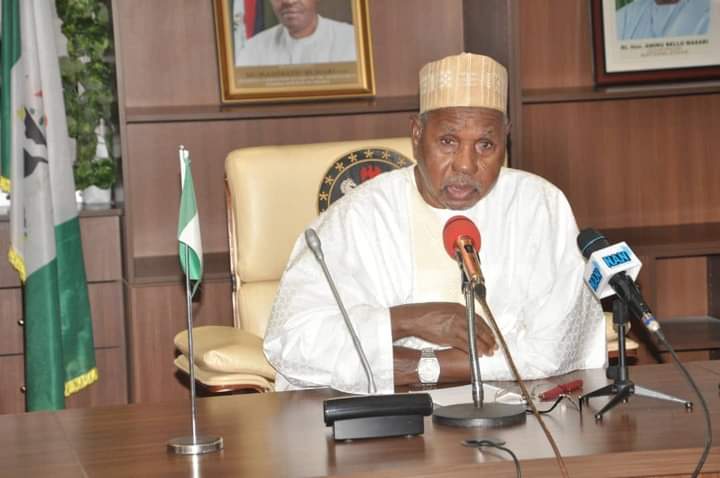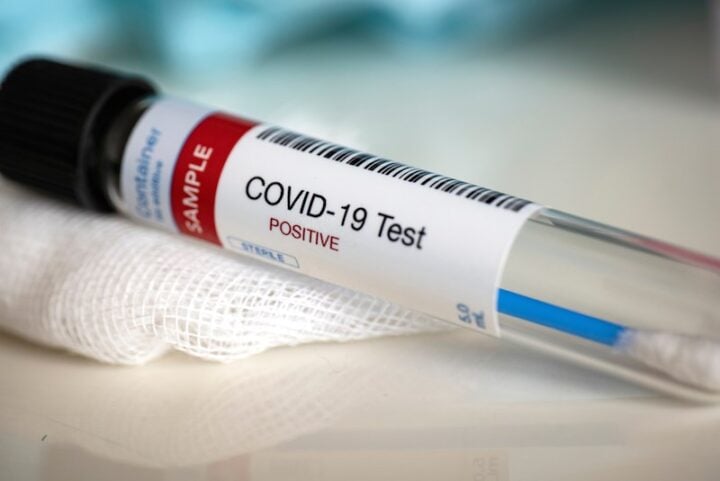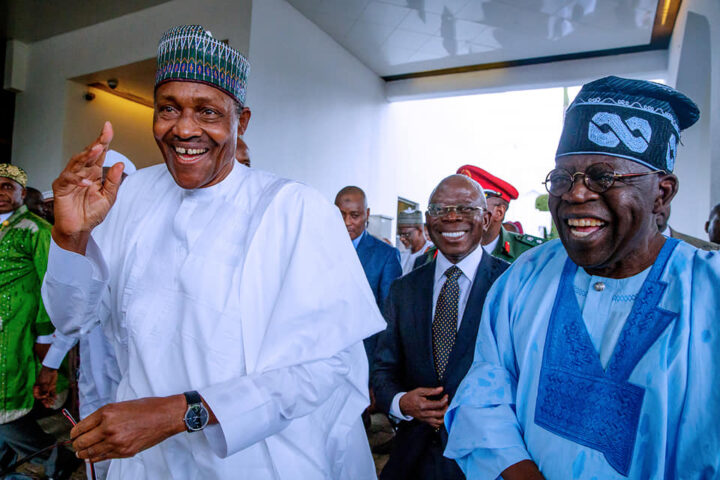BOOK REVIEW: Uneven Steps -- the story of the Nigerian Guild of Editors
BY AKPANDEM JAMES
It is not often that you have a Book Review begin with the author, but the fact remains that the content of a book is as good as the writer. The author transfers his knowledge and personage onto the package. The integrity of the author gives impetus to the book and believability to the content.
Mr Lanre Idowu, the author of Uneven Steps: The story of the Nigerian Guild of Editors can be described as a tested combatant and a Field Marshall in the journalism profession. He is a frontline participant in its affairs and a first-class traveler in the journey of the guild of Nigerian Editors. So writing about the journey of the guild, for him, is like reliving an experience.
The main title of the book, “Uneven Steps” summarises the story of the Guild. It signposts a travel episode of a giant who toddles along on a necessary trip harassed by headwinds: climbing hills and descending valleys with pain and stress; yet clinging on to the hope that along the way it will encounter a benevolent spirit that will confer on it the kind of status commensurate with public expectations of its members. A giant that is always apprehensive of the verdict of history, going by the original intentions of the founding fathers; and the realities of modern times, particularly as it affects the practice and the status of the body of practitioners. A journey full of nightmares: some imagined, some imposed, but largely self-inflicted.
Advertisement
The book narrates how sometimes the Guild moves closer to the attainment of its ideals; but as hope rises, the factors that hold all of us and the country hostage sneak in, and the light dims and the concert goes awry. When it happens, the editors and the Guild walk the scene with uneven steps. Editors are not alien to sour grapes, they encounter them in their search for what makes them what they are; in the process, they eat some, and the experience often has never been palatable.
So, going through the book, it looks obvious that the state of the NGE, which is just about a year younger than the country itself, is not different from the story of the country – audacious but not firmly established, moving but unstable. At some stage, the steps would be firm but along the line, they would wobble and then become uneven. In fact, a giant with feet of clay!
The Guild was given birth to by great minds and “ancestors” of the journalism profession, eminently acknowledged in Chapter Three. It was produced in the factory of rebellion, to avert annihilation by capitalists who saw the media as the vehicle to drive and sustain their ambitions. It was also to stave off discrimination in the Nigeria Union of Journalists (NUJ). It was therefore a child of circumstance. Idowu says it was, in part, the product of reverse discrimination in the NUJ. The Editor was a hired hand who could be directed and fired at will. But editors are not agberos whose major preoccupation is to load vehicles with no qualms as to capacity and safety considerations. The agbero’s interest is to load the vehicle and get his commission – whether or not the vehicle gets to its destination safely, is none of his business. Editors are not cast in that mold.
Advertisement
The pioneers wanted protection and relevance; they needed to do their jobs professionally and with integrity. They formed the Guild. They started the journey well, but the vagaries of weather and the harshness of the geopolitical tendencies coupled with the whims of the economic climate affected the smoothness of the journey, leading to tiredness, stress, despondency, and ultimately uneven steps.
Notwithstanding that Mr Idowu himself is a high priest in the congregation, he never pulled his punches where the sacrament went sour. He never also failed to beam the shining lights where appropriate. He is not one who allows sentiments to interfere with his conclusions. Wherever he saw a spade, he called it by its real name.
The book is done in a 6×9 inches format with 214 pages including 20 pages of front matter (Dedication, Abbreviations, Tables, Foreword, Preface and acknowledgments) and 45 pages of back matter (References, Appendixes, and Indexes). There are sixteen pages of images of past officials and events of the Guild. It is a catalogue of the triumphs and travails of the Guild in its sixty years. It is dedicated to the continued search for meaning and responsibility in the media and its promotion as a strong pillar of democracy and an agent of national development.
The main section starts with abbreviations of regular organs and institutions mentioned in the book; then tables of laws and cases, followed by the Foreword written by a revered “ancestor” of the profession, the late Prince Tony Momoh. The author wrote the Preface covering almost three and half pages. Acknowledgments and the Content pages follow before the first chapter.
Advertisement
The main story is set in seventeen chapters. The first chapter talks about the birth of the Guild – In the beginning; followed by The Press and Independence; The Guilds founding fathers; The Guild under military rule (1966-79); the Guild in the Second Republic (1979 – 1983); In search of the Guild (1983 – 1988); Resuscitation of the Guild (1988); Between Resurgence and Grovelling (1988-1992) and the Guild and Military Repression (19933 – 1998), in that order.
Other chapters include: A more assertive Guild; Constitutional Crises in the Guild; The Guild’s fellowship Award; Who is an Editor; The Editor in the Digital Age; The Associate Membership Conundrum; Who funds the Guild and The future of the Guild.
The book paints the Guild as a not too healthy child: a child with a fainting spirit; a body that is often missing in action during critical times – it disappears and returns limp; often brought back to life through a resuscitation process. For instance, in Chapter Six: In search of the Guild (1983 -1988), Idowu wrote that during the turbulent years of Decree No. 4 of 1984 when “the law was in no mood for journalistic adventurism” and when media houses were haunted at will, including the proscription of Newswatch magazine (Proscription from Circulation, Decree No.6 of 1987), the guild was in limbo.
He put it this way: “Whilst the NPAN and NUJ were in touch with the government to cut short the ban of Newswatch, the editors were missing in action. Since the fallout of the Minna Convention of 1982, there had been no professional body of editors to engage government”. It took some kind of Nicodemus moves, using some editors in government-owned media as medics, to bring the ailing Guild back to life. Idowu saw the move as part of the grand design by “government to woo the press, construct a semblance of amity and empanel a professional association for periodic engagement”.
Advertisement
Pages 56 to 63 covering two chapters unveiled the helpless and seemingly escapist nature of the Guild at some point, even in the face of threats, torments, torture, and emasculation of its members and the media. For instance on page 57, veteran journalist Chris Okolie was quoted (1988) as telling an executive member: “During the murder of Dele Giwa your executive kept mute. So, too, was your executive helpless when Ray Ekpu was charged with murder and arson. The executive did nothing when Daily Sketch and Tribune editors were put under pressure. Likewise, the same executive looked the other way when Newswatch was proscribed for publishing the Politbureau report”.
The Guild was still recuperating when new viruses were introduced into its system – the regular trademark of our woes as a political entity – Region and Religion. Coupled with the non-categorical definition of who an editor is in the electronic media, these became the underlying ailments that further crippled the Guild, a disability it is still struggling with to this day.
Advertisement
It was at the Minna Convention of 1982 that the infection occurred. In spite of the quality of practitioners then, the fumes of politics and the rascality in some quarters choked the Guild and it was placed on a ventilator until the Babangida regime in 1988 applied pressure on its chest; and was subsequently revived by proxy editors from government-owned organisations. Chapters Six and Seven deal with those issues.
So, did the Guild get well soon? Chapters Seven to Nine did not seem to discharge the patient, as the record shows that the status was between resurgence and groveling, especially as members came under another round of military repression between 1993 and 1998. It was not until 1998 that the Guild was on its feet and became more assertive, but the excitement of recovery after being bedridden for a long period and the zeal to fortify its ranks against another epidemic of the Minna dimension led to a constitutional crisis that almost returned the Guild to the casualty ward (Chapter 11).
Advertisement
One nagging symptom that is yet to find an appropriate prescription and remedy is the Editor himself. Who is the Editor and who should be a member of the NGE? If an ailment is not properly defined and diagnosed, prescription and treatment become difficult. And that’s a major challenge of the Guild. From the presentation, this seems to have become a problem since the Minna Convention, as indicated in Chapter five.
In Chapter 13, Idowu states that the original intention of the Guild was to have a club of de jure and de facto editors who, in law and in fact, determine what goes into publications. This, it is stated, made it easier for the founding fathers to agree on who a newspaper editor or deputy was. “It was also not controversial to determine who qualified as an associate member” (Page 122).
Advertisement
Throughout the book, the issue of professionalism and ethics rings loud. The desirability or otherwise of a Press Council can also be found in chapter 4. In fact, in Chapter 8, the book quotes one of the Guild’s past presidents, Alhaji Waida Maida as having told his colleagues in 1991 that “the media are gradually losing believability and we must do something to arrest this trend. We ought to appreciate the weight of our responsibility in the sustenance of democratic rule once the military hands over to the civilians”. Whether that has been achieved, the answer blows in the wind.
It’s not all gloom. Apart from indications in about three preceding chapters, the concluding chapter on the Future of the Guild states clearly that there is a lot to commend the body for if assessed by its stated objectives. For one, the search for a code of ethics has been successfully completed and periodic enlivening of its provisions, especially at periods of general elections, is ongoing.
The author displays a monumental power of recall and a professional grasp of perspectives. He made about 74 citations from key players to back up his narrative on particular subject matters. The book is a befitting trophy for the Guild at 60. It is one book that every journalist, journalism teacher, journalism school, and those interested in the growth of journalism practice, should have. In fact, it should find space in every library. It is both a reference book and a history book.
The writer has done his bit in chronicling the journey of the Guild in the last 60 years of its existence. Although the founding fathers championed a course that was meant to give impetus to the practice and the profession, lack of trust and leadership incongruities threatened the concord that existed in the fold at the beginning, a development that has persisted till this day.
There is therefore the need for members to arise, like the tribune of old, and form a vanguard to protect and pilot the affairs of the body. We must channel all our efforts towards building a strong independent body that can, in one accord, deliver a sucker punch when challenged. We must resolve at all times to remain steadfast to the ideals of the profession and the nurturing of a galaxy of stars. We should be an inspiration to other professional bodies, God being our guardian.
James is a fellow of the Nigerian Guild of Editors (fnge). This review was made at the 17th Annual All Nigerian Editors Conference in Abuja on Thursday, October 21, 2021.






